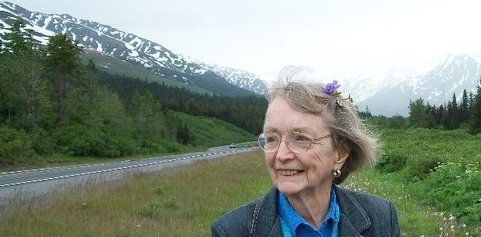Families facing the end-stage dementia of a loved one actually experience 2 deaths; first the existential death of the person they knew, due to changes in personality, do the things that defined their lives, or the eventual inability to recognize their loved ones. The second death is the physical one, often due to pneumonia or infection after years of gradual decline.
Working with the terminally ill for most of my 40 years as a nurse, I deemed end-stage dementia a difficult and prolonged illness that can mean years of stress for family caregivers. It never ceased to amaze me when I witnessed their commitment to care despite their exhaustion. What often sustained them was the memory of that person and the role he or she played when in full health. The loss of that companionship and meaningful sharing can be devastating. These losses may be accompanied by changes in personality as filters are removed. A person who had been meticulous in their grooming or style now prefers to not bathe and does not care who sees them naked. This can be a shocking and unnerving transformation for the family as they do not recognize this new person. These are a few of the many losses and mini deaths before the final physical death.
Watching my own mother slowly progress in her dementia, another aspect, almost a rebirth, has been revealing itself.
My mother was the first to say, “If I ever get Alzheimer’s, just take me out and shoot me!” The fear of lack of control and losing oneself is shared by many , including me. But the downward slide into this insidious disease has also revealed a blessing, which came as a surprise to me.
No longer censuring her opinion, she freely reveals her thoughts, and my brothers and I are now collecting humorous mom-isms.
No longer worrying about her weight , she enjoys her desserts without apology.
No longer obsessed with her external image matching the preferences of her husband by wearing the right clothes or best jewelry, she now revels in her joy of putting on cheap plastic daisy earrings because, in her heart, she has always been a wildflower girl.
No longer fretting that I am unmarried, a status contrary to the beliefs of her day and the cause of great concern, her frequent frets of “Can’t you find a good man?” have been replaced with “How is that sweet dog of yours?”. A four-legged male is now a sufficient source of love.
No longer worrying about the appearance of her home, she can sit for hours and enjoy watching animals scamper in the desert outside her window.
She has lost her tendency to judge and worry and replaced it by accepting and even embracing what is.
She is now complimentary of everyone and everything, appreciative of even the smallest gestures.
When the caregivers tell me how sweet she is and I quickly retort, ”This is not the mother I grew up with!”
Do I still need to hold onto that past?
This emerging way of being has resulted in my own barriers falling away, allowing for compassion, forgiveness, and love that I had not expected to feel.
We are both being transformed.
So now I reflect:
Nearing the end of her life, has she actually found the authentic life she had previously denied herself, unencumbered by external forces or the need to please?
I have lost the mother I knew, but gained a mother whose spirit is shining through with simple joy.
In letting go, losing her self,
has she finally found herself
or have I finally found her?
Letting go near the end of life is a unique and dynamic process.
What have you experienced?

